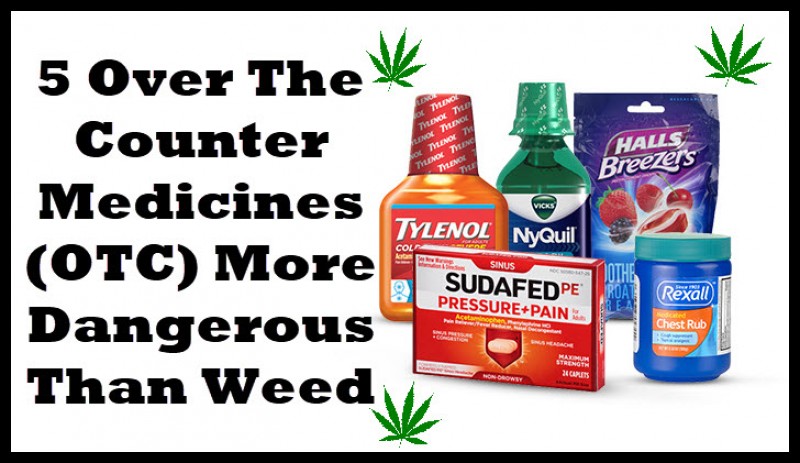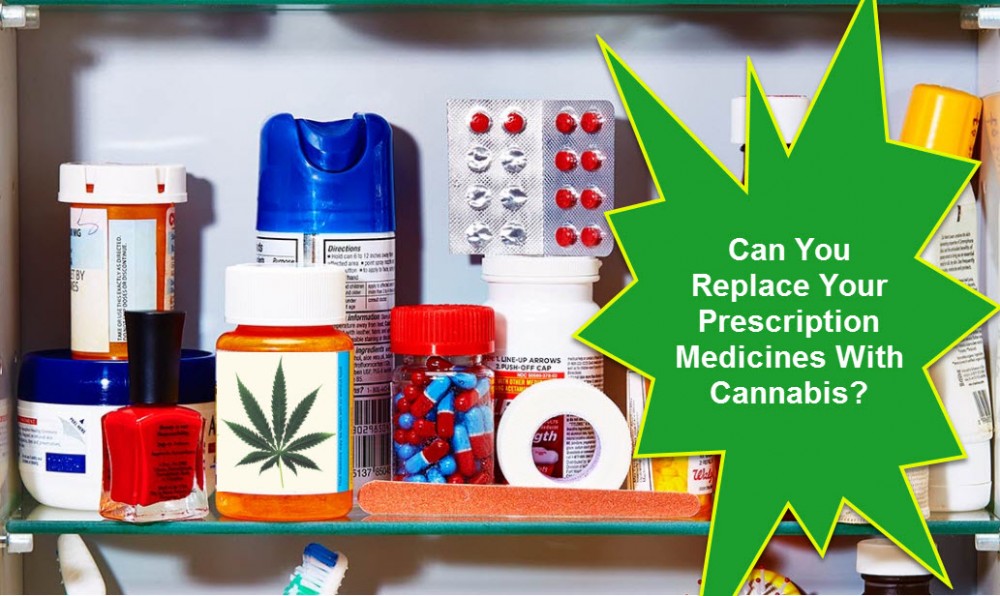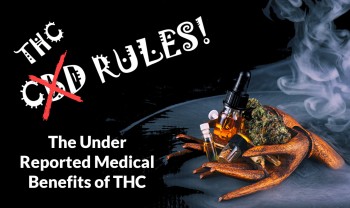5 Over The Counter Medicines (OTC) More Dangerous Than Weed
When you look at the facts and consider everything that’s legal and accessible (alcohol, tobacco, opioids) compared to the fact that cannabis remains a federally illegal substance, sometimes you can’t help but wonder if your government is out to kill you.
These days, many people still struggle to have access to medical cannabis to treat chronic conditions. But you can easily walk into a pharmacy and purchase over-the-counter (OTC) medications that are FAR more dangerous than cannabis: a drug that has never caused a single overdose or death in the history of its use.
These are 5 common OTC medications that are prone to abuse and overdose:
- Acetaminophen: Also known as paracetamol, acetaminophen is a class of drugs that is used to treat mild to moderate pains and fever. It is usually sold in drugs that are combined with other medicines, such as in cold medications. Acetaminophen is the most widely used drug ingredient in the United States and can be found in these brand name medicines: Tylenol, Dayquil, Excedrin, Midol, Nyquil, Robitussin, Sinutab, Sudafed, Theraflu, and more. The recommended maximum dose should never go above 4,000 mg, but even then, if some people take below 4,000 mg this can still result in liver problems down the road especially when taken with alcohol.
Overdosing on acetaminophen can cause vomiting, nausea loss of appetite, and pain in the abdomen. Abusing acetaminophen can cause liver failure and death. And from 2001 to 2010, over 1,500 individuals in the United States have died from accidental acetaminophen overdoses.
- Antihistamines: Commonly known under the brand names Clariti, Alavert, Benadryl, Zyrtec, antihistamines can come in many forms. These include tablets and capsules as well as liquid, eyedrops, and nasal sprays. While some require a prescription, many antihistamines can be purchased OTC at any pharmacy. Antihistamines are used to treat allergies by blocking or reducing histamines. They are used for a variety of allergies including food allergies and hay fever, but they aren’t necessarily effective in treating every symptom.
The main danger of using antihistamines is that many of them cause drowsiness, which can put people at risk if you need to drive or operate heavy machinery. Other side effects associated with antihistamines include delirium, irregular heartbeat, psychosis, and even a coma in extreme cases. The safe dose for adults depends on the medicine.
Overdosing on antihistamines can lead to ringing of the ears, enlarged pupils, dry mouth, blurred vision, nervousness, and flushed skin. In extreme cases, overdose can cause hallucinations, shaking, convulsions, abnormal heartbeat, and disorientation.
- Nonsteroidal anti-inflammatory drugs (NSAIDS): NSAIDS are a group of medications that are used to treat chronic pain, bone and joint pain, and fevers. The most common forms of NSAIDS are ibuprofen and aspirin. Taking NSAIDS for a long period of time can put you at risk for developing strokes and heart attacks, even if you never had a risk in the first place. The risk for developing these conditions is exacerbated when you take NSAIDS in high doses and use it for a long period of time. Ibuprofen has also been associated with fertility issues among men and women.
An ibuprofen overdose is characterized by blurred vision, headaches, dizziness, confusion, intestinal bleeding, hypotension, increased risk for coma or seizures, skin rashes, trouble breathing, digestive problems, and more.
- Codeine: Codeine is a form of an opioid that is used to treat pain, diarrhea, and coughs. The use of codeine has been limited in recent years, although they can still be found in many cough medicines.
Codeine works by suppressing pain and coughs, but its interactions in the body are similar to that of morphine. Not only is codeine addicting, but it can cause heart problems such as bradycardia or tachycardia, hypotension, constipation, drowsiness, lightheadedness, headaches, dizziness, confusion, restlessness, vomiting, nausea, and more.
- Dextromethorphan (DXM): DXM is commonly found in OTC cough and cold medicines such as Nyquil, Dayquil, Robitussin, Tylenol Cold, and Theraflu. Because of restrictions in codeine, DXM took its place in most drugs especially those distributed in the United States. However, DXM is highly addictive and it can cause an overdose.
Overdosing on DXM leads to blurred vision, breathing problems, irregular breathing, extreme drowsiness, seizures, convulsions, constipation, muscle twitching, hallucinations, increased body temperature, rapid heart rate, palpitations, too low or too high blood pressure, and in extreme cases, coma and even death.
Mixing OTC Medications
Generally speaking, OTC medicines are meant to be taken in low doses and have a minimal impact on the body. However, these are still prone to being abused. And because people have the misconception that they are safe because they can be purchased over the counter, most don’t think twice about mixing drugs which can lead to an overdose and serious side effects.
Mixing OTC medications with alcohol can also complicate matters. Flu and cold medicines with acetaminophen can cause long-term damage on the liver when taken with alcohol. This combination also heightens the risk for an upset stomach, rapid heartbeat, and ulcers.
Meanwhile, cannabis has none of these side effects – but we’re still fighting an uphill battle to get it legalized completely!
5 Over The Counter Medicines (OTC) More Dangerous Than Cannabis from CannabisNet on Vimeo.
OTHER STORIES YOU MAY ENJOY...
CANNABIS FOR PRESCRIPTIONS, CLICK HERE.
OR..
WHY AREN'T MEDICAL STUDENTS TAUGHT ABOUT CANNABIS, READ THIS.








